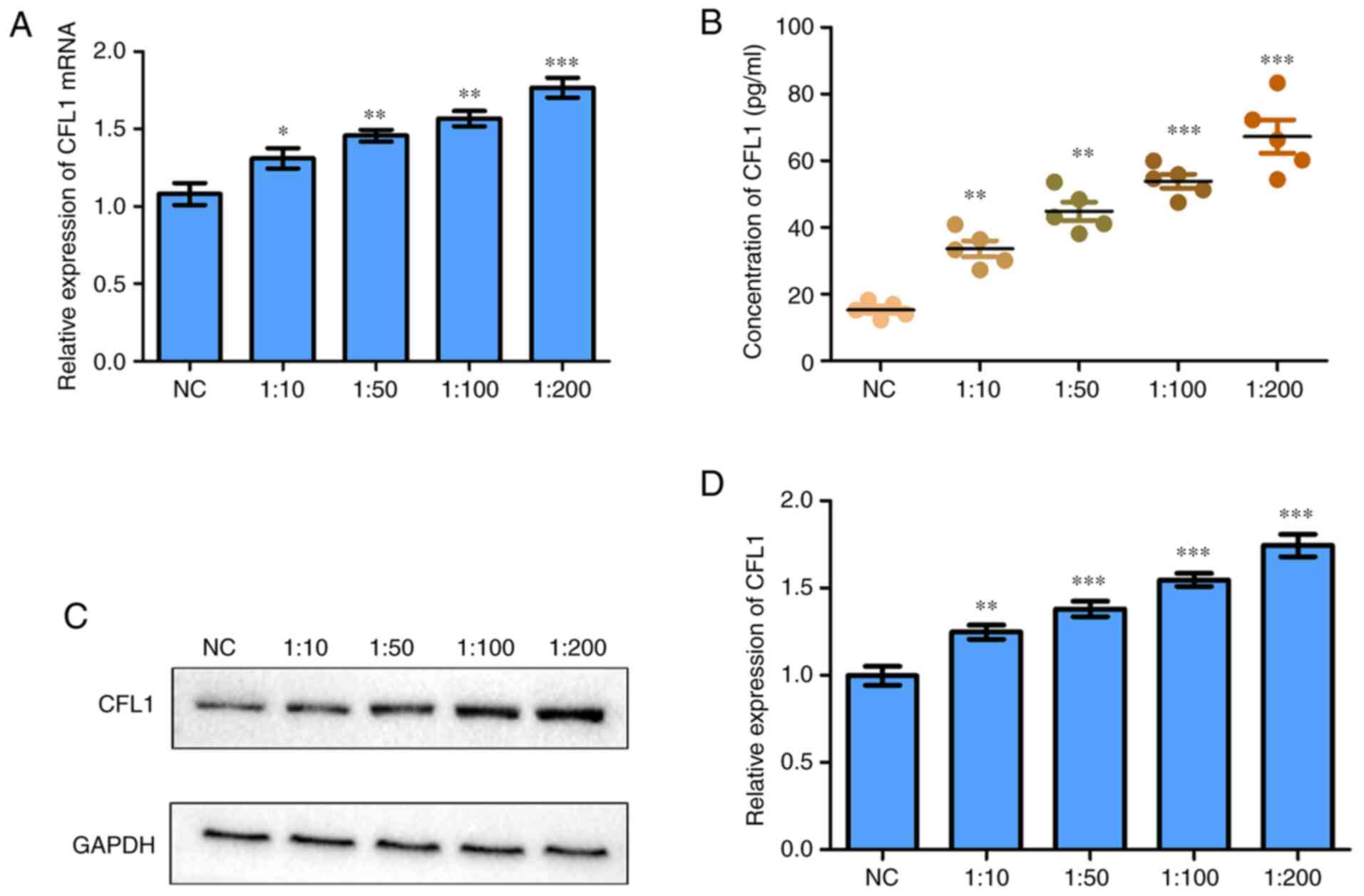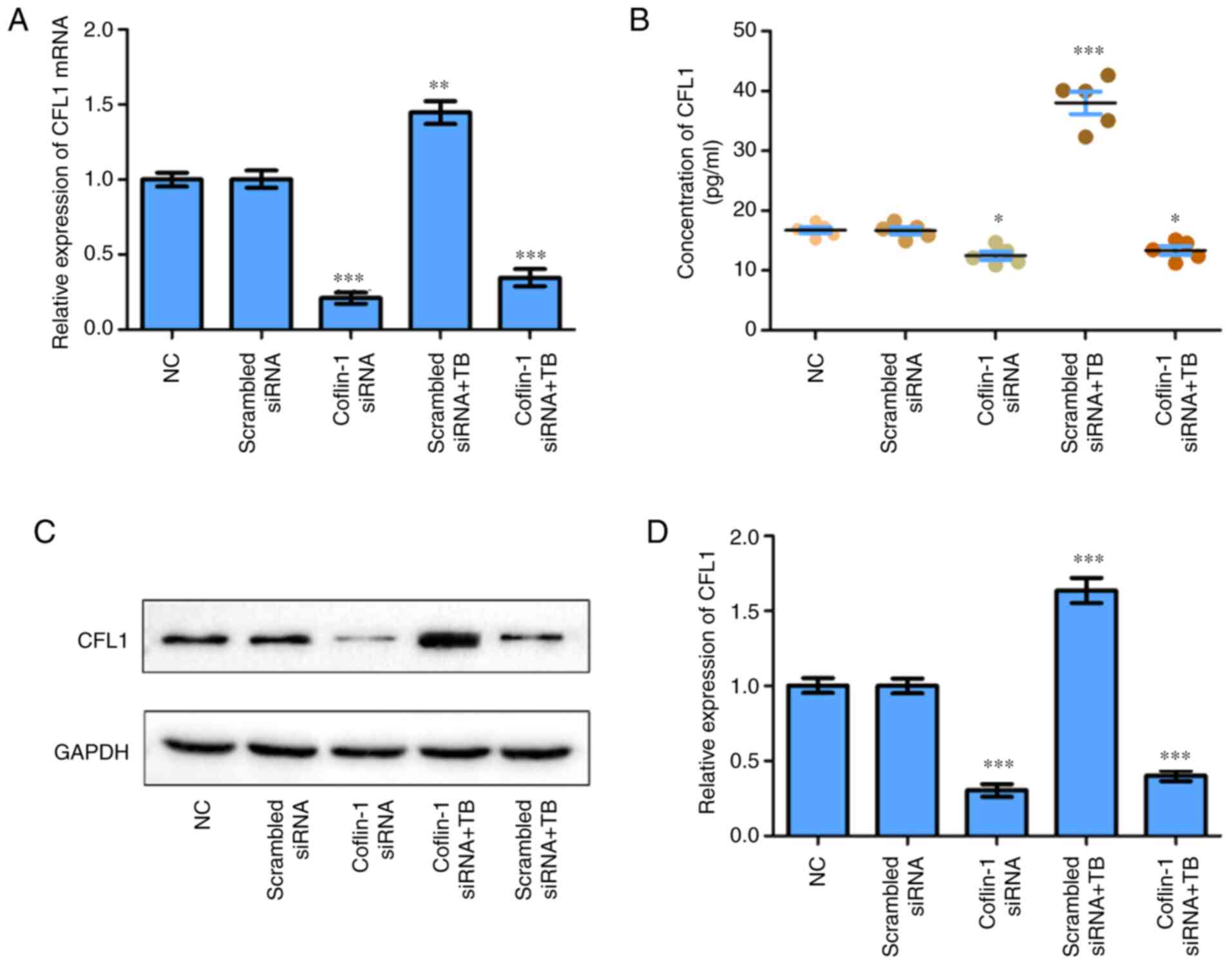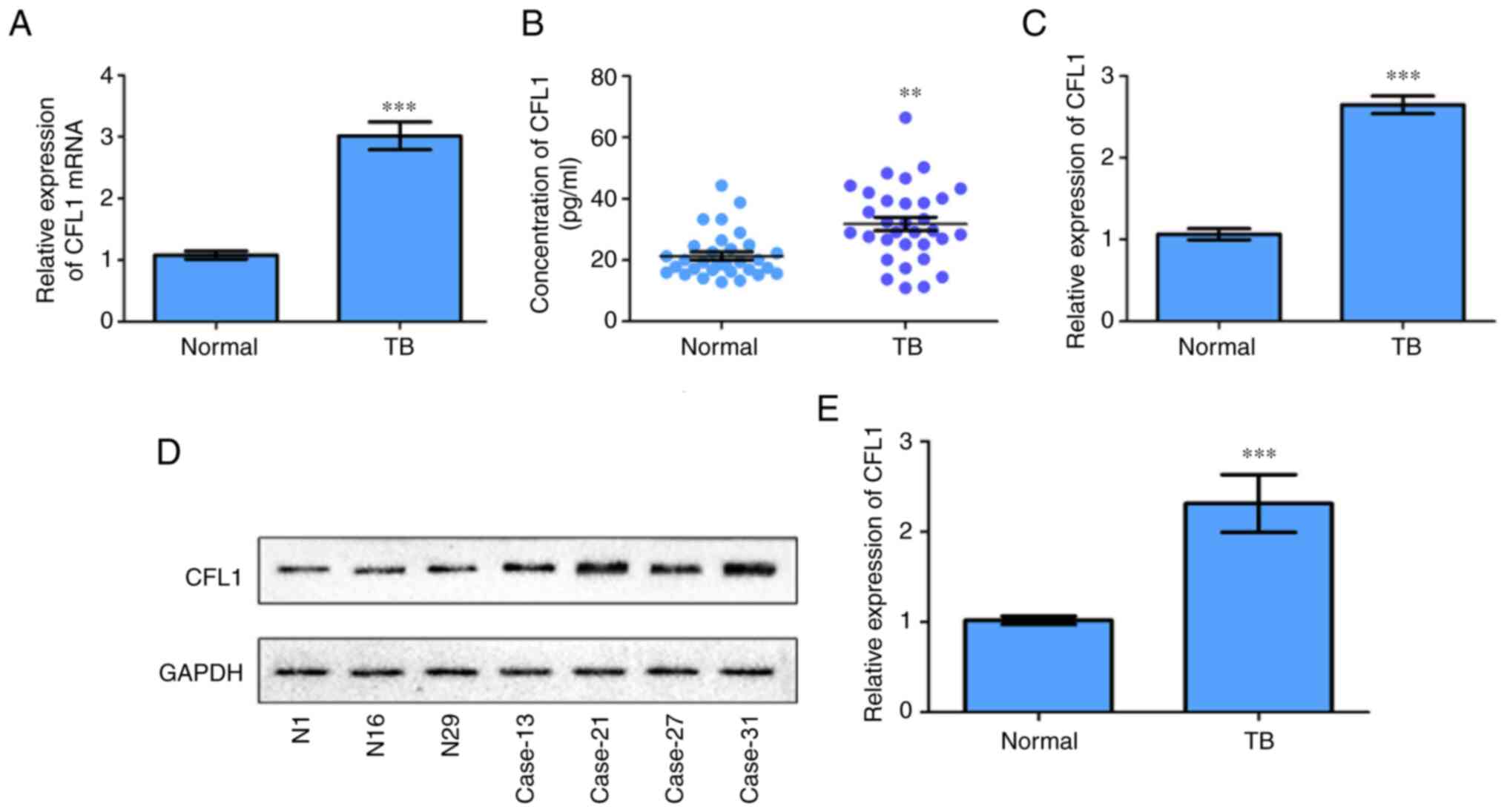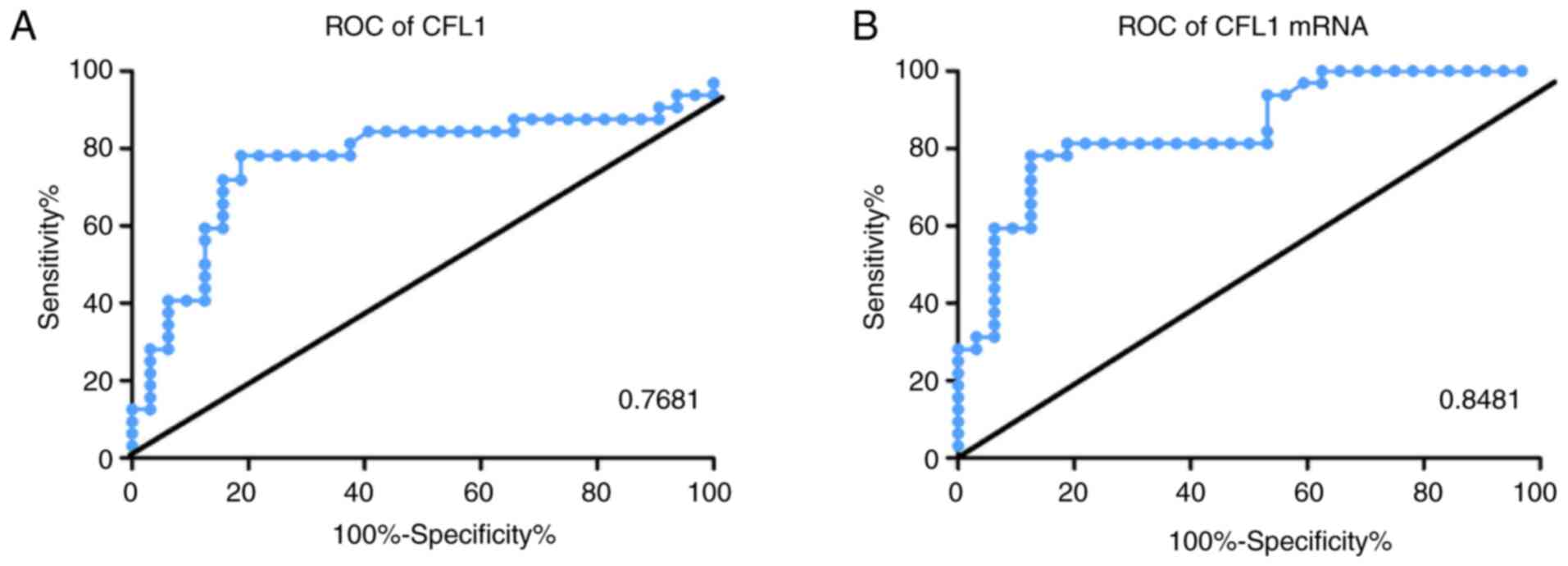|
1
|
Wang J, Wang Y, Tang L and Garcia RC:
Extracellular vesicles in mycobacterial infections: Their potential
as molecule transfer vectors. Front Immunol.
10(1929)2019.PubMed/NCBI View Article : Google Scholar
|
|
2
|
Zhang M, Xie Y, Li S, Ye X, Jiang Y, Tang
L and Wang J: Proteomics analysis of exosomes from patients with
active tuberculosis reveals infection profiles and potential
biomarkers. Front Microbiol. 12(800807)2022.PubMed/NCBI View Article : Google Scholar
|
|
3
|
Shimao T: Tuberculosis and its
control-lessons from the past and future prospect. Kekkaku.
80:481–489. 2015.PubMed/NCBI(In Japanese).
|
|
4
|
Dheda K, Barry CE III and Maartens G:
Tuberculosis. Lancet. 387:1211–1226. 2016.PubMed/NCBI View Article : Google Scholar
|
|
5
|
Dye C, Floyd K and Uplekar M: In global
tuberculosis control: Surveillance, planning, financing. Vol. 1.
Ch., pp17-37, 2008.
|
|
6
|
Cheon SA, Cho HH, Kim J, Lee J, Kim HJ and
Park TJ: Recent tuberculosis diagnosis toward the end TB strategy.
J Microbiol Methods. 123:51–61. 2016.PubMed/NCBI View Article : Google Scholar
|
|
7
|
Galimi R: Extrapulmonary tuberculosis:
Tuberculous meningitis new developments. Eur Rev Med Pharmacol Sci.
15:365–386. 2011.PubMed/NCBI
|
|
8
|
Furin J, Cox H and Pai M: Tuberculosis.
Lancet. 393:1642–1656. 2019.PubMed/NCBI View Article : Google Scholar
|
|
9
|
Vartiainen MK, Mustonen T, Mattila PK,
Ojala PJ, Thesleff I, Partanen J and Lappalainen P: The three mouse
actin-depolymerizing factor/cofilins evolved to fulfill
cell-type-specific requirements for actin dynamics. Mol Biol Cell.
13:183–194. 2020.PubMed/NCBI View Article : Google Scholar
|
|
10
|
Percipalle P: Co-transcriptional nuclear
actin dynamics. Nucleus. 4:43–52. 2013.PubMed/NCBI View Article : Google Scholar
|
|
11
|
Obrdlik A and Percipalle P: The F-actin
severing protein cofilin-1 is required for RNA polymerase II
transcription elongation. Nucleus. 2:72–79. 2011.PubMed/NCBI View Article : Google Scholar
|
|
12
|
Wiggan O, Schroder B, Krapf D, Bamburg JR
and DeLuca JG: Cofilin regulates nuclear architecture through a
myosin-II dependent mechanotransduction module. Sci Rep.
7(40953)2017.PubMed/NCBI View Article : Google Scholar
|
|
13
|
Wang W, Mouneimne G, Sidani M, Wyckoff J,
Chen X, Makris A, Goswami S, Bresnick AR and Condeelis JS: The
activity status of cofilin is directly related to invasion,
intravasation, and metastasis of mammary tumors. J Cell Biol.
173:395–404. 2006.PubMed/NCBI View Article : Google Scholar
|
|
14
|
Ono S: Mechanism of depolymerization and
severing of actin filaments and its significance in cytoskeletal
dynamics. Int Rev Cytol. 258:1–82. 2007.PubMed/NCBI View Article : Google Scholar
|
|
15
|
Hotulainen P, Paunola E, Vartiainen MK and
Lappalainen P: Actin-depolymerizing factor and cofilin-1 play
overlapping roles in promoting rapid F-actin depolymerization in
mammalian nonmuscle cells. Mol Biol Cell. 16:649–664.
2005.PubMed/NCBI View Article : Google Scholar
|
|
16
|
Kapoor S: Cofilin-1 overexpression and its
role in tumor growth and progression in systemic malignancies. Int
J Radiat Biol. 90(113)2014.PubMed/NCBI View Article : Google Scholar
|
|
17
|
Wang JJ, Chen C, Xie PF, Pan Y, Tan YH and
Tang LJ: Proteomic analysis and immune properties of exosomes
released by macrophages infected with Mycobacterium avium.
Microbes Infect. 16:283–291. 2014.PubMed/NCBI View Article : Google Scholar
|
|
18
|
Wang J, Yao Y, Wu J, Deng Z, Gu T, Tang X,
Cheng Y and Li G: The mechanism of cytoskeleton protein β-actin and
cofilin-1 of macrophages infected by Mycobacterium avium. Am
J Transl Res. 8:1055–1063. 2016.PubMed/NCBI
|
|
19
|
World Health Organization; International
Union Against Tuberculosis and Lung Disease; Royal Netherlands
Tuberculosis Association: Revised international definitions in
tuberculosis control. Int J Tuberc Lung Dis 5: 213: 215, 2001.
|
|
20
|
Livak KJ and Schmittgen TD: Analysis of
relative gene expression data using real-time quantitative PCR and
the 2(-Delta Delta C(T)) method. Methods. 25:402–408.
2001.PubMed/NCBI View Article : Google Scholar
|
|
21
|
Dasgupta SK and Thiagarajan P:
Cofilin-1-induced actin reorganization in stored platelets.
Transfusion. 60:806–814. 2020.PubMed/NCBI View Article : Google Scholar
|
|
22
|
Shishkin S, Eremina L, Pashintseva N,
Kovalev L and Kovaleva M: Cofilin-1 and other ADF/cofilin
superfamily members in human malignant cells. Int J Mol Sci.
18(10)2016.PubMed/NCBI View Article : Google Scholar
|
|
23
|
Tsai CH, Lin LT, Wang CY, Chiu YW, Chou
YT, Chiu SJ, Wang HE, Liu RS, Wu CY, Chan PC, et al:
Over-expression of cofilin-1 suppressed growth and invasion of
cancer cells is associated with up-regulation of let-7 microRNA.
Biochim Biophys Acta. 1852:851–861. 2015.PubMed/NCBI View Article : Google Scholar
|
|
24
|
Chung H, Kim B, Jung SH, Won KJ, Jiang X,
Lee CK, Lim SD, Yang SK, Song KH and Kim HS: Does phosphorylation
of cofilin affect the progression of human bladder cancer? BMC
Cancer. 13(45)2013.PubMed/NCBI View Article : Google Scholar
|
|
25
|
Jiang N, Kham SK, Koh GS, Suang Lim JY,
Ariffin H, Chew FT and Yeoh AE: Identification of prognostic
protein biomarkers in childhood acute lymphoblastic leukemia (ALL).
J Proteomics. 74:843–857. 2011.PubMed/NCBI View Article : Google Scholar
|
|
26
|
Peng XC, Gong FM, Zhao YW, Zhou LX, Xie
YW, Liao HL, Lin HJ, Li ZY, Tang MH and Tong AP: Comparative
proteomic approach identifies PKM2 and cofilin-1 as potential
diagnostic, prognostic and therapeutic targets for pulmonary
adenocarcinoma. PLoS One. 6(e27309)2011.PubMed/NCBI View Article : Google Scholar
|
|
27
|
Guan M, Chen X, Ma Y, Tang L, Guan L, Ren
X, Yu B, Zhang W and Su B: MDA-9 and GRP78 as potential diagnostic
biomarkers for early detection of melanoma metastasis. Tumour Biol.
36:2973–2982. 2015.PubMed/NCBI View Article : Google Scholar
|
|
28
|
Zheng Y, Fang Y, Li S and Zheng B:
Detection of plasma cofilin protein for diagnosis of lung cancer.
Nan Fang Yi Ke Da Xue Xue Bao. 33:1551–1553. 2013.PubMed/NCBI(In Chinese).
|
|
29
|
Xiang Y, Zheng K, Ju H, Wang S, Pei Y,
Ding W, Chen Z, Wang Q, Qiu X, Zhong M, et al: Cofilin 1-mediated
biphasic F-actin dynamics of neuronal cells affect herpes simplex
virus 1 infection and replication. J Virol. 86:8440–8451.
2012.PubMed/NCBI View Article : Google Scholar
|
|
30
|
Saha S, Hazra A, Ghatak D, Singh AV, Roy S
and BoseDasgupta S: A bumpy ride of mycobacterial phagosome
maturation: Roleplay of coronin1 through Cofilin1 and cAMP. Front
Immunol. 12(687044)2021.PubMed/NCBI View Article : Google Scholar
|


















